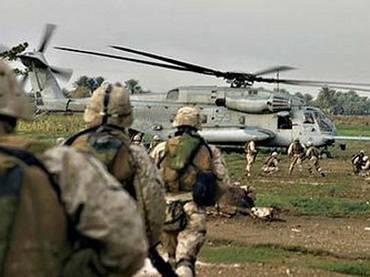
Reuters
The United States and its allies are discussing a worst-case scenario that could require tens of thousands of ground troops to go into Syria to secure chemical and biological weapons sites following the fall of President Bashar al-Assad’s government, according to US and diplomatic officials. These secret discussions assume that all of Assad’s security forces disintegrate, leaving chemical and biological weapons sites in Syria vulnerable to pillaging. The scenario also assumes these sites could not be secured or destroyed solely through aerial bombings, given health and environmental risks. A US official, speaking on condition of anonymity to explain the sensitive discussions, said the United States still had no plans to put boots on the ground in Syria. President Barack Obama’s administration has, in fact, so far refused to provide lethal support to the rebels fighting to oust Assad’s regime and the Pentagon has played down the possibility of implementing a no-fly zone anytime soon. “There is not an imminent plan to deploy ground forces. This is, in fact, a worst-case scenario,” the official said, adding US forces would likely play a role in such a mission. Two diplomatic sources, also speaking on condition of anonymity, said as many as 50 000 or 60 000 ground forces may be needed if officials’ worst fears are realised, plus additional support forces. Even a force of 60 000 troops, however, would not be large enough for peacekeeping and would only be the amount required to secure the weapons sites, despite some of the appearances of an Iraq-style occupation force, the diplomatic sources cautioned. It is unclear at this stage how such a military mission would be organised and which nations might participate. But some European allies have indicated they are unlikely to join, the sources said. The White House declined to comment on specific contingency plans. Spokesman Tommy Vietor said that while the US government believes the chemical weapons are under the Syrian government’s control, “Given the escalation of violence in Syria, and the regime’s increasing attacks on the Syrian people, we remain very concerned about these weapons. “In addition to monitoring their stockpiles, we are actively consulting with Syria’s neighbours — and our friends in the international community — to underscore our common concern about the security of these weapons, and the Syrian government’s obligation to secure them,” Vietor said.











